“As long as death and madness are all we know in this house…”
If you’re going to talk about Dan Curtis, then the first thing you need to reckon with is the fact that he was kind of an asshole.
Today, we’re going to talk about Master of Dark Shadows: The Gothic World of Dan Curtis, an 86-minute documentary about Dan’s life and work, produced in 2019 for MPI Home Video. The film was produced by Jim Pierson from Dan Curtis Productions, and directed by David Gregory, who’s made a lot of shorts for horror film DVD special features.
The documentary considers Dan Curtis, Dark Shadows’ executive producer: the man who dreamed up the show, and drove it from a low-rated loser to a frantically successful hit, and back again in record time. A famously driven man, if sometimes driving in the wrong direction, Dan got two Dark Shadows feature films out of MGM, and produced a slew of horror TV-movies and anthology series, including a pilot for Dead of Night. His greatest post-Shadows success was the epic TV miniseries The Winds of War, which was an enormous success in 1983, and led to a sequel. In his later years, Dan was obsessed with re-creating his Dark Shadows glory days, with a 1991 reboot, a 2004 pilot and countless other pitches.
After a minute and a half of introduction and theme, the documentary gets right down to business.
“I put down ten things about Dan Curtis, that I feel summarize the man,” says William F. Nolan, a screenwriter who worked with Dan on Trilogy of Terror and Burnt Offerings.
He consults the list in his hand. “Impatient,” he says.
So, I mean. If somebody makes a list of your qualities, and the top item on their list is “impatient,” then that is something that you should probably consider, when you’ve got the time. That is a red flag.
Nolan follows this up with “creative,” and then other voices chime in. Lara Parker offers “brilliant,” Joe Caldwell says “energetic”, and John Karlen says, “tough guy attitude.” But it’s Nolan’s list that drives the word portrait: impatient, creative, pragmatic, commanding, demanding, tough, hard-working, loyal, dedicated, stubborn and proud. That’s actually eleven items on Nolan’s list, but it wouldn’t be Dark Shadows without a mistake here or there.
There are some positive elements in that list — creative, loyal, dedicated — as well as negative — impatient, demanding and stubborn. Parker closes the sequence by saying, “And I was terrified of him!”
He was a famously difficult man. After working with him on the 2004 pilot, screenwriter Mark Verheiden said, “I discovered that his first response to almost anything is ‘I hate it.'” Sam Hall, who worked with Dan on the Dark Shadows series and films, quit working on the 1991 show when he discovered that Dan was asking multiple writers to work on the same episode, without their knowledge. He was kicked off his own golf show.
He pushed people to their limits, and beyond. On Dark Shadows, he wasn’t satisfied with a vampire and a couple of ghosts floating around Collinwood: he wanted a witch and a werewolf and a phoenix and time travel and gypsies and wizards and a fraudulent exorcist, all at the same time. He had a show that was shot live-to-tape with no editing equipment, which was well-known even at the time for its bloopers and malfunctions, and he kept pushing for more visual effects, more quick-changes, more elaborate set-ups.
He was not a genius. He wasn’t even good, some of the time. He was not particularly open to feedback, and if his instinctive approach to the material was wrong, he did not want to hear about it.
Dan Curtis was intense, and passionate, and impossible to deal with, and he created my favorite television show.
Master of Dark Shadows does a nice job of establishing Dan’s childhood and family life in about three minutes — his mother dying at an early age, his loving relationship with his wife, big smiles from his two daughters — and then we get to New York, and the hustle.
He started out selling syndicated television shows to local stations, and became convinced that he could do a better job than those producers. He started his own little production company, and managed to sell CBS a golf show, CBS Golf Classic, which began in 1963.
“Dan’s no-nonsense approach did not always make him popular with the network executives,” the narrator explains. “His gruff personality once even got him banned from his own show.” Ejected from Golf Classic and looking for a new project, Dan discovered his big break in his dreams.
Everyone knows the story of Dark Shadows’ inspiration — Dan’s dream about a girl on a train, traveling to the end of the line, to become the governess at the big house on the hill.
“She steps out on an empty platform,” Dan recounts, “and the train pulls away into the darkness and the mist, and she’s standing there all alone. And I woke up.”
And then it turned into a television show. It’s a very peculiar origin story for a hit show, and it demonstrates the peculiar turn of Dan’s mind. I could see dreaming up the premise for Charlie’s Angels, or Knight Rider, but who wakes up from a dream and thinks, “A girl, standing in mist! I’ve gotta put this in front of ABC!”
Then there’s the guy on the other end of the line: long-suffering ABC Vice President Leonard Goldberg, who gets woken up by an early-morning phone call and an earful of Dan Curtis, insisting that they get together and talk about this dream he just had.
“I told him about this idea,” Dan recalls, “and how I thought what a great night-time show it would make. ‘What a great idea! Let’s do it in the daytime!’ No, it’s not a daytime show, this thing isn’t a soap!”
“Dan was a very powerful salesman,” says Goldberg, “but he also sparked something in me.”
Dan continues, “By the end of the meeting, we shook hands, and I said to him, okay, all right. We’ll do this as a daytime show.”
If there’s a moment of genius in this origin myth, that’s it right there: selling this non-story to a network vice president, and making the other guy think he’s won the argument.
The story of the title is also a classic.
“We didn’t know what we were going to call the show,” Dan explains. “Somebody came up with Shadows on the Wall, and I didn’t like that title. I was just, I gotta come up with a title that makes sense. Something like Dark Shadows would be good. And somebody said, shadows are always dark. I said, not necessarily. There are light shadows, as well! Dark Shadows, that kinda says it all!”
So obviously the question is: are there light shadows, really? But that’s how Dan operated: as soon as somebody argued with him about the title, that was the title that he wanted.
And then it’s Dark Shadows, and you know how that story goes; we’ve been talking about it for a thousand episodes. One of the lovely things that this documentary does is to hand over a big section of the early Dark Shadows story to writer Malcolm Marmorstein, who I didn’t love scriptwise, but he was there on the spot when it all kicked off.
Marmorstein was the one who came up with the Phoenix storyline, which is correctly described as the moment that the show’s fortunes started to reverse, and he was part of the team who came up with Barnabas. Writer Joe Caldwell chimes in as well, agreeing with Marmorstein about how disappointed they were with Jonathan Frid getting cast.
Marmorstein sets up the initial plan, when they figured out how they were going to introduce a vampire into a sleepy soap opera: “Let’s pretend we are the first people doing a vampire series, anything. We make our own ground rules. They never heard of Bela Lugosi, the people in this town. They never saw Dracula, they never read it, they knew nothing about it. He can’t turn into a wolf. He has a relatively human seeming body, who thrives on blood.”
Most importantly, they had to get the casting right. “Don’t cast a guy who looks like Bela Lugosi,” Marmorstein says. “Get some young, blond guy. Not an old vampire. But get a young, blond guy, and we’ll play it from there… Of course, they hired Jonathan Frid, who when I looked at him, I wanted to faint. I mean, they hired Bela Lugosi.”
But obviously the end of that story is that it worked out brilliantly, and Frid’s Barnabas drove the show to undreamed-of success. This section of the documentary, discussing the show’s dizzy rise, is absolutely delicious — especially for me, right now, watching entropy drain away all the energy, here at the far edge of the universe.
This is when they bring in Whoopi Goldberg and Alan Ball to talk about the magic of Dark Shadows for kids, and how thrilling it was to go straight from school to a daily afternoon horror show that seemed like it was made just for them. There’s a section about the kids hanging around outside the studio, waiting for the actors to come and go, and there’s a bunch of film clips of actors getting out of taxis and signing autographs. I love that piece of the story, when it’s just pure pleasure, the symbiotic call-and-response between the creators and the audience, exactly in tune with each other.
“People don’t usually talk about this,” Christopher Pennock says, “but it was very popular with prostitutes and drug addicts, cause they were just waking up at 4:00, watching our show. So I’d be walking down 48th Street, and the hookers would be out there, ‘Jeb! Hi, Jeb!'” And what could be nicer than that?
The Dark Shadows section takes up more than half of the film’s running time, and rightly so; this is the part when all of the interviewees are glowing with enthusiasm, reveling in the memory of these golden days.
“I got a pretty good imagination,” Dan says, describing his solution to the problem of Barnabas, “and I reached the point when I didn’t know what I was gonna do next — what kind of a story could I come up with, and keep this guy going? I was always fascinated by time travel, and I thought, wait a minute: why don’t we go back, into the past, and find out how Barnabas became a vampire?”
“And, wow,” he grins. “You talk about success, it was our most popular story. I never wanted to get out of the past! I’d stay there forever! And the thing that was so wonderful about it was when Victoria was transported back through a seance, that was my device, and she walks into the Old House, the way it was in those days, and there are all the same actors, playing different roles. The audience went nuts over that! They just loved that!”
We see David Selby and Robert Cobert glowing over the success of “Quentin’s Theme”, Lara Parker and Joe Caldwell talking about stealing material from classic literature, and Kathryn Leigh Scott leading into a nice selection of DS bloopers.
They only spend a few minutes on the Dark Shadows movies, and I’m a bit surprised that they don’t use the dramatic story of the last-minute edit on Night of Dark Shadows. But by this point, there’s only about twenty minutes left in the film, and they’ve got to wrap up the Dark Shadows section and move on to the rest of Dan’s life.
By the time Dark Shadows wrapped, Jonathan Frid was worried about getting typecast, and Dan had that experience as well; he found that he was only able to sell TV executives on horror shows. In 1972, Dan made a TV-movie called The Night Stalker for ABC Movie of the Week, and it got very high ratings, so that’s what they wanted from him. He went on to spend a couple years on adaptations of Frankenstein, The Picture of Dorian Gray, Dracula and The Turn of the Screw — all of them stories that he’d previously ripped off for Dark Shadows material.
He produced Trilogy of Terror in ’74, Burnt Offerings in ’76, Dead of Night in ’77, and by the end of the decade, he was burned out on horror.
William Nolan says, “He felt like he was trapped in the genre, as a matter of fact. If you do well, the better you do, the more they want you to do the same kind of thing. And I’m tired of doing that stuff, he said. I’ve scared enough people!”
So then there’s the next huge phase of Dan’s career, spending almost ten years making the epic miniseries The Winds of War, and its sequel, War and Remembrance. These were based on Herman Wouk’s 1971 and 1978 novels, about a fictional family connected with President Roosevelt as the United States enters World War II. The first book starts with the German invasion of Poland in 1939 and goes through the attack on Pearl Harbor in 1941; the second continues the story through the end of the war in 1945, including the liberation of the Holocaust concentration camps.
Barbara Steele — who I only know as a horror actress, and Julia in the 1991 Dark Shadows — was a producer on both Winds of War miniseries, and in the documentary, she gives a really thrilling account of these enormous and difficult productions.
The miniseries recreated major historical events, involving hundreds of speaking parts and thousands of extras, with battleships and planes and Nazis and lots of locations, and Steele describes Dan working seven-day weeks, constantly working through challenges and inspiring his team to excel.
This is the point where they stop talking about how difficult Dan was, and just focus on the positive side of his personality: a man who could do big things, because he had the energy and the charisma to get people to go beyond their limits. I don’t think that this is a story that Dark Shadows fans know, because The Winds of War doesn’t bear any resemblance to the small-scale spook show that we love. It’s a very effective part of the film, that enriches my understanding of who Dan was, and what he could do.
There’s some discussion of the 1991 Dark Shadows, but the film soon makes its final turn toward Dan’s legacy, the love that people still have for his first big hit. We see the cast coming together for the 50th anniversary celebration, and the affection that the fans still have for the show.
Dan says at the end that he’d rather not be remembered as the guy who made kids run home from school; the part of his life that he really treasures is the 1980s, when he made huge television epics. But strangely, The Winds of War, that Emmy-winning spectacular, hasn’t lingered in our hearts. It was a very good production, very successful and appreciated, but ultimately, it’s something that people liked, rather than loved.
People hold on to the things that they love, even if it’s silly and rickety and flawed. Like it or not, the show that Dan worked on for five years at ABC Studio 16 is his true legacy, not the ten years that he spent working on something bigger and more respectable. But that’s how love works, it doesn’t always make sense.
Dan Curtis was eccentric and passionate and full of energy, and so was the show that he created for us. If we love Dark Shadows, then I guess we have to love Dan, too, and we are grateful.
Tomorrow: Today’s Lucky Lotto Picks.
Dark Shadows bloopers to watch out for:
When Julia tells Bramwell that she’s bringing the family’s condolences, there’s blue marking tape on the rug.
Bramwell says, “Julia, we both know — we both know perfectly well that — well, that he doesn’t stand a chance this time.”
As Amanda, Melanie says, “I warned you before to get out of this houf — house.”
When Brutus appears in the drawing room, Kendrick cries, “Julia, look!” and points in the wrong direction.
Tomorrow: Today’s Lucky Lotto Picks.
— Danny Horn

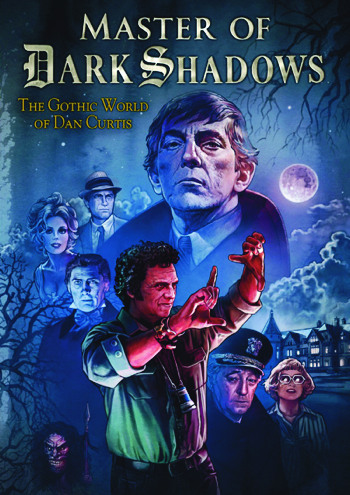
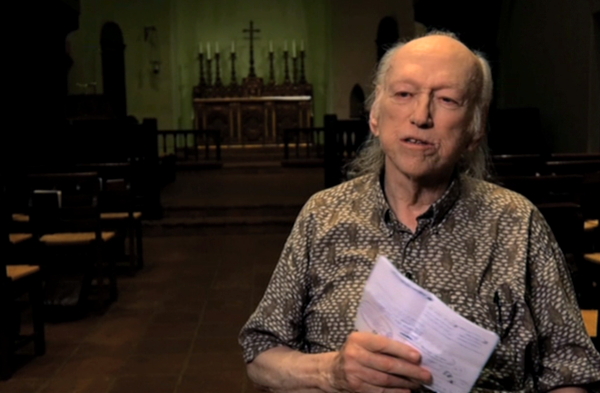

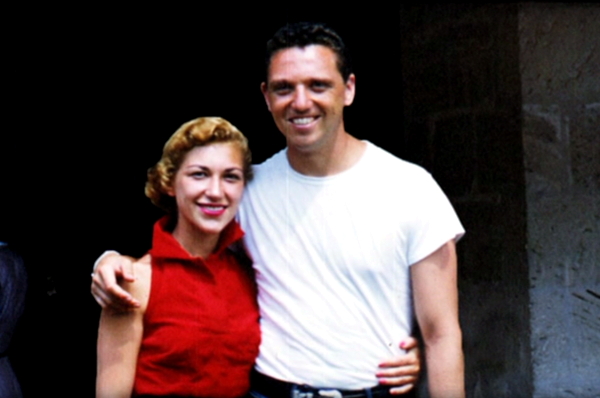


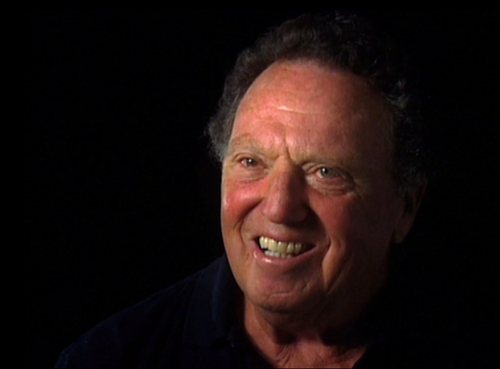
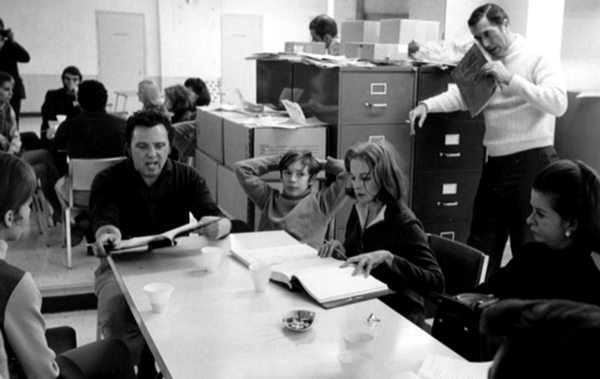

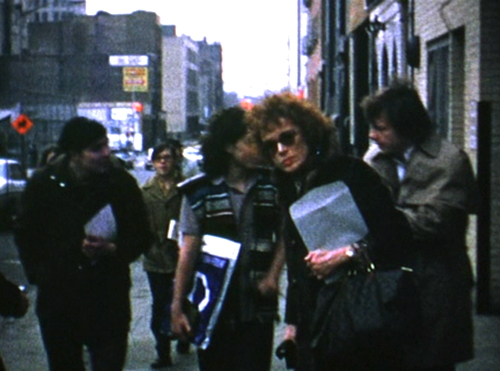


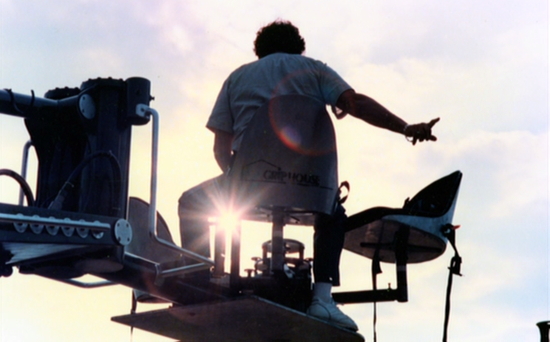
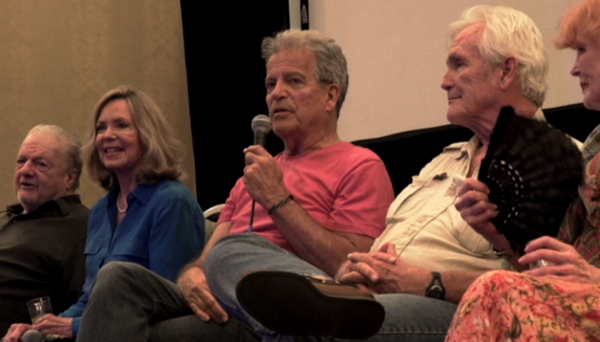

“Master of Dark Shadows” is still available for free on Tubi.
It is also still available on Amazon Prime.
It’s on Amazon Prime too.
I’m sorry Rose. I was going to post my comment, around 1:00 pm, but I got called away. Only Mary’s comment had been up at that time. When I got back to post my comment, I didn’t refresh my screen. It was only after I posted it that I immediately saw you’d beaten me to it.
Awhile back, an Indian I knew in Barbados long ago taught me the secrets that he used when he needed enormous power. You see, the gods told him the secret magic number of the universe, the number which unlocks all the rules that bind you mortals to your daily, dull lives. The number is whispered so deeply into the soul that no one can remember it, without… using the magic.
Anyway, he told me the magic number of the universe, and I was going to use it on my post to predate yours. However I forgot where the decimal point went, so I was unable to succeed. Hence my apology above.
Phrankenstign, I love this post. Apology totally accepted, though I must admit I got pretty excited about the possibility of learning the secret magic number of the universe. Alas…
No worries. Without wearing the jaunty silver brocade smoking jacket/ dressing gown from Fire Island Vampire Fashions, the whole incantation just sort of falls apart anyway…..
“So obviously the question is: are there light shadows, really?” – Why, yes, Danny, there are. One of my hobbies is gardening, and I have a number of plants that thrive in “bright shade” — spots that don’t get any direct sunlight, but lots of indirect light, making them “light shadows.” Truly dark shadows get little if any indirect light. So, yes, there are light shadows, really.
By the way, I really liked “The Winds of War,” but didn’t realize at first that it was produced by Dan Curtis. When I later learned that it had been produced by the man who dreamt up and drove “Dark Shadows,” I was delighted.
Ed Wood’s less patient cousin.
The video clips of Dan Curtis talking are a bit jarring- all the stories about him make him sound so much like a cartoon character who is constantly shouting at everyone that his actual voice seems wrong.
These episodes have some moments that point strongly to what soaps were going to be like in the 70s. When Kendrick carries Melanie into their room, puts her on the bed, and starts kissing her- I think that’s the most sex-like interaction we’ve seen on the show. We’ve come a long way from the days when Joe would go to Maggie’s house and sleep on her couch.
Seriously shocking! I actually said “wow!” so many times my husband sighed and reminded me the characters were married! But yeah, Gordon Russell understood chemistry and it was great to see a happy couple at the end of all this.
Yes, the first happy couple in the entire series. I suppose we have to think of Magda and Sandor as having been happy for a long time before Barnabas came along, but as soon as they become characters in Dark Shadows they’re miserable. Likewise with Megan and Philip, Chris and Sabrina, Jason and Willie, etc.
Nobody really mourned the “better off” dead Gabriel. Kendrick is done mourning his sister Stella. Now Daphne dies and Julia, Catherine, Bramwell, and Melanie mourn her. Hopefully there’s a bit of extra room for Daphne where Gabriel was put. Perhaps Julia should release a PR statement telling of Gabriel’s and Daphne’s departure for England to oversee Collins Cannery International Enterprises. If any other Collins should meet an unforeseen end any time soon, the statement could be amended by stating the name was inadvertently left off the first press release.
I kind of felt sorry for Kendrick. His wedding night consisted of putting his sad wife to bed….alone…..and then preventing her from stabbing him later. Not exactly the kind of wedding night one dreams of normally.
It’s nice to see Brutus continue his quest to kill everyone to fulfill his curse of revenge. I guess he blames her and her progeny for her infidelity. Amanda appeared to hate the Collins family, because she blamed Brutus and his progeny for her death. Though Brutus and Amanda hate each other, they’ve both got the exact same goals.
The important thing to remember was Brutus’ original curse was still in effect! Brutus’ bedroom had been re-locked, and the lottery had been reactivated! Perhaps the news would get Flora and Quentin to come downstairs to participate.
Something to ponder late at night in the Dark Shadows: If someone spends the whole night in Brutus’ locked bedroom, Brutus’ curse will end. Amanda didn’t listen to Brutus when she was alive and has been resting uncomfortably downstairs in the Accounting Room of Death since 1680. When Amanda’s ghost possesses Melanie, Amanda’s personality takes over. When Brutus imposes his will over Melanie, she is still herself, but she can’t help herself from doing what he wants. The point of all this is if the curse is lifted at some point, Amanda is still around to possess Melanie or whomever she wants. She’s operating independently of any curse, and she hasn’t promised to ever stop.
Brutus needs to clarify all this.
First, he’s manifesting himself to Melanie to rezone her for Amanda (who evidently IS a knife wielding wacko), so now SHE wants to massacre all the family and anyone else she comes across (hopefully there’s not another suit of armour positioned oddly in another passage).
Then Brutus is materializing to Julia and Kendrick to insist that the lottery must happen AGAIN. Why? Clearly he just wants to wipe out his descendants.
And (yes, again) I will ask – – why doesn’t he just give them all the plague? Why did that go away? Did he forget how, or run out of ingredients for his potion?
And why did Brutus decide to go medieval on THIS bunch, anyhow? Just because Morgan busted in the tomb room?
Well, it does give Louis Edmonds something to do here in the waning days. Just wish it was something that made sense.
Oh, this damn curse is basically…the dream curse, out for one more trot around the track. Brutus was playing Calvinball at this point, just changing any rule he felt like but never actually KILLING OFF anybody who wasn’t nine tenths of the way there already, a la Gabriel.
I laughed about how far off the mark they chromakeyed Brutus at the end. Maybe they’ll get it right next time.
I think Dan Curtis was a genius, for one specific reason–when he had that dream, he knew what he had.
Most people, if they remembered such a seemingly nothing dream at all, would shrug it off the minute they woke up. Or they’d jazz it up, or use it only as a starting point and end up on a spaceship, or resolve to quit reading Bronte before bed.
But when Dan had his dream, he knew it was it, the real thing, the beginning of everything. He didn’t change it or update it or be talked out of it by having it pointed out to him that this was Jane Eyre, for heaven’s sake, Dan, don’t you do golf shows?
Yeah, he did golf shows. But when he had a dream, he knew to hang onto it.
I came across that Dan Curtis documentary at the beginning of the pandemic and was quite thrilled as I had just restarted my viewing of the series. Very interesting life he lead.
As far as the episode goes, it was jarring to see a couple go to bed on this series. Imagine what would’ve happened had the show went on, hopefully returning to 1971 (and also not some PT 1971). Too bad it was ruined by Melanie going mad.
Julia is still horrible and I wish Bramwell would’ve smacked her like Morgan did a few episodes ago.
Kendrick pointing way off the mark to where Brutus should’ve been was hilarious and very indicative of how the show has become off the mark.
On this same evening ABC aired Bewitched Episode #224: “Out of the Mouths of Babes” wherein Endora changes Darrin into his 12 year old self which turns out to be a blessing as the young Darrin is able to tell the client how disgusting his Irish Stew is without losing the account.